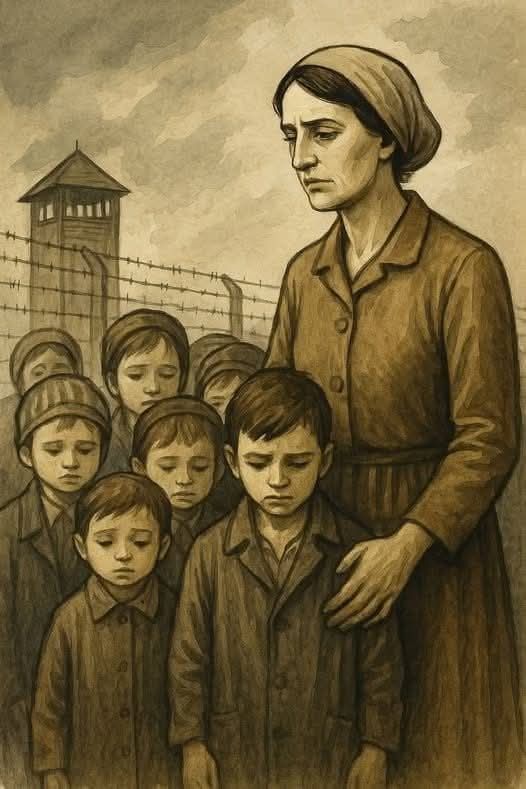In 1943, a courageous Jewish woman stood at the threshold of her fate. Her name was Ottilie “Ottla” Kafka. At forty-one, she made a decision that would define her legacy: she volunteered to accompany a group of children to the Auschwitz concentration camp. Her life was marked by struggle, independence, and the weight of a legendary surname. 🌸
Ottla Kafka was born on October 29, 1892, in Prague, into a middle-class Jewish family. She was the youngest of four siblings in the Kafka household. While her older brother Franz would gain fame as a writer, Ottla stood out for her rebellious spirit and fierce independence. 🌸
From a young age, Ottla challenged her family’s expectations. While her sisters, Valli and Elli, chose the traditional paths of marriage and domestic life, Ottla gravitated toward agriculture and education. She attended a girls’ school and later trained in farming—an unusual choice for a woman in her era. 🌸
It wasn’t just her vocation that set her apart, but her character. Ottla was bold, perceptive, and uncompromising. Her brother Franz saw her as his confidante and closest friend. In their letters, he entrusted her with thoughts he shared with no one else. For Franz, Ottla was a light in his often-shadowed world. 🌸
In the 1920s, Ottla took over the management of a farm in Zürau, a quiet village far from Prague’s noise. There, she led a simple life, immersed in nature and hard work. Zürau was also where Franz spent time recovering from tuberculosis and wrote his renowned Zürau Notebooks, deeply influenced by his stay with Ottla. 🌸
In 1920, Ottla met Josef David, a Christian lawyer, and they married in 1921—defying her father’s wishes and the traditions of her family. Their marriage was never fully accepted by her father, but Ottla remained steadfast. 🌸
Sadly, happiness was short-lived. With the rise of n4zism, life became perilous for Jews in Czechoslovakia. Ottla divorced Josef in 1942, likely hoping to protect him and their daughters from persecution. But her own fate was already sealed. 🌸
That same year, Ottla was deported to the Theresienstadt ghetto. Despite the inhuman conditions, she worked with strength and compassion, especially helping children. 🌸
In 1943, Ottla volunteered to accompany a group of children on a transport to Auschwitz. She knew what awaited, but did not hesitate. With quiet courage, she boarded the train with the children, sharing with them their final journey. 🌸
On October 7, 1943, Ottla Kafka was murdered in the gas chambers of Auschwitz. 🌸
Though her life was extinguished by n4zi brutality, her memory lives on in the letters she exchanged with Franz, and in the stories of those who knew her. Ottla Kafka was more than just the sister of a genius—she was a woman of unbreakable courage who chose her own path, right to the end. 🌸
